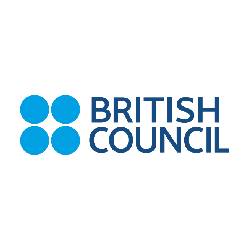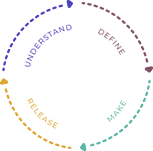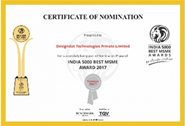Ruby on Rails Development
Ruby on Rails (RoR) is a powerful and elegant open-source web application framework written in Ruby. Known for its “convention over configuration” philosophy, Rails accelerates development by making assumptions about what developers need to get started. It is ideal for startups and enterprises looking to build robust, secure, and maintainable web applications quickly.
Why Choose Ruby on Rails?
- Rapid Development: Convention-based structure saves time
- MVC Architecture: Clear separation of concerns
- Scalable and Secure: Perfect for startups and enterprise solutions
- Large Ecosystem: Thousands of gems for reusable components
- Active Community: Strong developer support and updates
Our Ruby on Rails Services
Custom Web Development
Build feature-rich, user-focused apps
API Development
RESTful and GraphQL APIs using Rails
eCommerce Platforms
Custom storefronts and back-office tools
CRM & SaaS Applications
Multi-tenant cloud platforms
Third-party Integrations
Payment, email, and analytics integrations
Rails Upgrade & Maintenance
Keep your Rails app secure and up-to-date
Solutions We Offer
Startups & MVPs
Launch fast and iterate rapidly
Enterprise Apps
Robust and scalable internal tools
Marketplaces
Custom multi-vendor platforms
Job Portals
Dynamic job listing and hiring solutions
Social Networks
User-focused platforms with real-time features
Learning Management Systems
eLearning platforms with user management
Technology Stack
Languages
Ruby, JavaScript
Frameworks
Ruby on Rails, Hotwire, Stimulus
Frontend
HTML5, CSS3, Tailwind, React, Vue.js
Databases
PostgreSQL, MySQL, Redis
Tools
RSpec, Sidekiq, Webpacker
Hosting
Heroku, AWS, DigitalOcean
Development Workflow
Requirement Gathering
Understand your business goals
Wireframing & Architecture
Plan with scalability in mind
Agile Sprints
Incremental delivery with regular feedback
Testing & QA
Automated and manual tests
Deployment
CI/CD pipelines and secure hosting
Support & Maintenance
Bug fixes, updates, and enhancements
Core Features of Ruby on Rails
MVC Architecture
Rails is based on the Model-View-Controller (MVC) pattern, promoting a clear separation of concerns and maintainable code organization.
Active Record
Active Record is Rails’ powerful ORM (Object-Relational Mapping) layer that simplifies database interactions using Ruby objects.
Convention over Configuration
Rails favors standardized practices and naming conventions, reducing the need for boilerplate code and speeding up development time.
RESTful Routing
Rails promotes clean, RESTful URL structures and routes, aligning with modern web service standards and improving maintainability.
Built-in Testing Framework
Rails comes with built-in support for unit, functional, and integration tests, making test-driven development (TDD) seamless.
Common Use Cases for Rails
- Custom web applications
- eCommerce platforms
- Content management systems (CMS)
- Social networking sites
- Marketplaces and SaaS products
Future of Ruby on Rails
Ruby on Rails continues to be a trusted framework for building modern web applications. With continuous updates, security improvements, and a strong ecosystem of gems and libraries, Rails remains a go-to choice for developers and businesses focused on productivity, performance, and rapid innovation.

.jpg)







